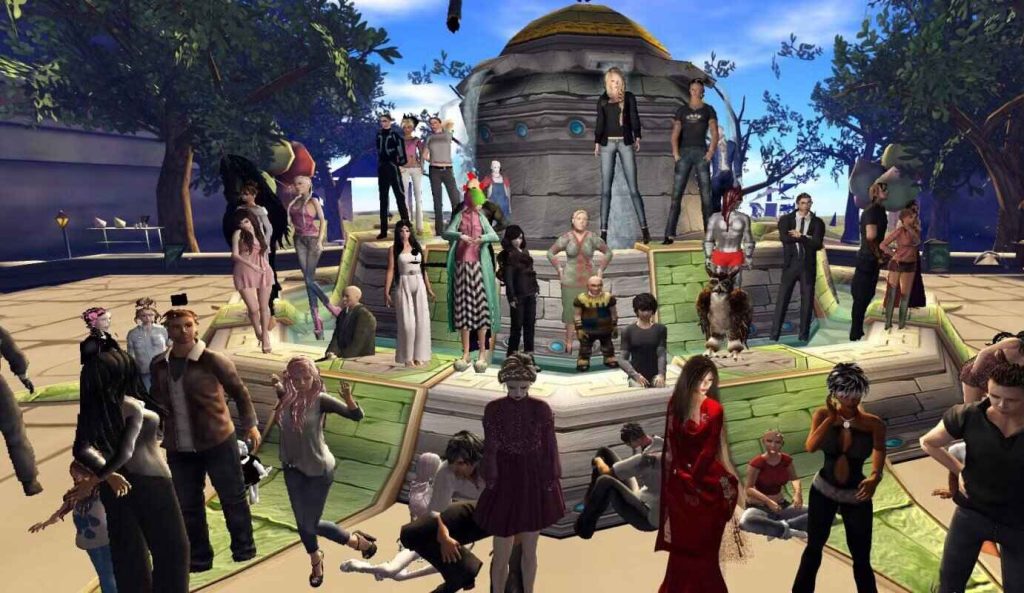Introduction
In a digital age where virtual experiences are becoming increasingly sophisticated, online life simulation games stand out as immersive worlds where players can escape reality and step into a virtual existence of their own making. These games offer a diverse range of experiences, from building and managing virtual cities to creating and customizing characters to lead entire lifetimes. In this exploration, we delve into the fascinating realm of online life simulation games, examining their evolution, popular titles, gameplay mechanics, and the psychological allure that keeps players engaged for hours on end.
Evolution of Online Life Simulation Games
The roots of online life simulation games can be traced back to early text-based simulations like “Alter Ego” in the 1980s, where players made choices to navigate the various stages of life. However, it was Will Wright’s groundbreaking title “SimCity” in 1989 that laid the foundation for the genre. “SimCity” allowed players to build and manage their own virtual cities, balancing budgets, zoning land, and responding to simulated disasters.
Following the success of “SimCity,” the genre expanded rapidly, with titles like “The Sims” series dominating the market. Released in 2000, “The Sims” revolutionized life simulation games by introducing detailed character customization, interpersonal relationships, and the simulation of everyday activities. Players could guide their virtual avatars through career advancement, romantic relationships, and even parenthood, creating deeply personal narratives within the game world.
Popular Online Life Simulation Games

The Sims Series: A cornerstone of the genre, “The Sims” franchise allows players to create and control virtual characters, known as Sims, as they navigate various aspects of life, from career advancement to family dynamics.
Second Life: Launched in 2003, “Second Life” is a virtual world where players can create and customize their avatars, interact with others, and build and trade virtual property and goods.
BitLife: A mobile life simulation game that lets players simulate the life of a virtual character from birth to death, making choices that influence their career, relationships, and overall well-being.
Animal Crossing: A charming life simulation game where players inhabit a village populated by anthropomorphic animals, engaging in activities like fishing, bug catching, and decorating their homes.
Stardew Valley: Combining elements of life simulation and farming simulation, “Stardew Valley” tasks players with restoring and managing a dilapidated farm while interacting with villagers and exploring the game’s world.
Gameplay Mechanics and Features
Online life simulation games typically offer a range of gameplay mechanics and features designed to immerse players in the virtual world and provide endless possibilities for creativity and exploration. Some common gameplay mechanics include:
Character Customization: Players can create and customize their virtual avatars, often with a wide range of options for appearance, clothing, and personality traits.
Building and Management: Many life simulation games involve building and managing virtual spaces, such as homes, cities, or farms, allowing players to exercise creativity and strategic thinking.
Social Interaction: Online life simulation games often feature social elements, allowing players to interact with other users through chat, messaging, and multiplayer gameplay.
Choice and Consequence: Players’ decisions have consequences that impact the virtual world and the trajectory of their characters’ lives, adding depth and replay value to the gameplay experience.
Psychological Allure of Online Life Simulation Games
The enduring popularity of online life simulation games can be attributed to several psychological factors that make them inherently appealing to players:
Escapism: Life simulation games offer a form of escapism, allowing players to temporarily disconnect from the stresses of real life and immerse themselves in a virtual world where they have control over their surroundings and experiences.
Creativity and Self-Expression: The freedom to create and customize characters, homes, and communities appeals to players’ innate desire for self-expression and creativity, providing a platform for them to explore their imagination and design skills.
Social Connection: Many online life simulation games facilitate social interaction and community building, allowing players to connect with others who share similar interests and form meaningful relationships within the virtual world.
Achievement and Progression: Life simulation games often reward players for achieving goals, advancing their characters’ careers, or building successful virtual businesses, tapping into the human desire for achievement and progression.
Sub-genres of Online Life Simulation Games

City Building Simulators: From the pioneering days of “SimCity” to modern titles like “Cities: Skylines,” city building simulators allow players to become urban planners, designing and managing bustling metropolises. They must balance factors like infrastructure, zoning, and resources to create thriving cities while tackling challenges like pollution, traffic, and natural disasters.
Social Life Simulations: Games like “The Sims” and “Second Life” focus on interpersonal relationships and social dynamics, enabling players to create virtual avatars, build relationships, pursue careers, and interact with other players in shared virtual spaces. These games offer a sandbox experience where players can express themselves creatively and forge meaningful connections with others.
Career and Life Simulations: Titles such as “BitLife” and “The Guild” simulate entire lifetimes, allowing players to make choices that shape the course of their characters’ lives. Players can pursue various careers, start families, accumulate wealth, and experience the consequences of their decisions, providing a rich and immersive narrative experience.
Innovative Gameplay Mechanics
Procedural Generation: Many online life simulation games utilize procedural generation algorithms to create dynamic and diverse virtual worlds. This allows for endless replayability as each playthrough offers unique experiences, environments, and challenges.
Emergent Gameplay: Emergent gameplay mechanics enable unexpected interactions and outcomes to emerge from the complex systems within the game world. Players must adapt and respond to these emergent situations, adding depth and unpredictability to the gameplay experience.
Player-Driven Content: Some online life simulation games empower players to create and share their own content within the game world. This could include customizing avatars and environments, designing mods and game modifications, or even creating entire virtual communities and economies.
Player Communities and Social Dynamics
Online Communities: Online life simulation games often foster vibrant and active communities of players who share tips, strategies, and experiences. These communities may gather on forums, social media platforms, or within the games themselves to discuss gameplay, collaborate on projects, or organize in-game events.
Roleplaying Communities: Many online life simulation games attract roleplaying communities who engage in immersive storytelling and character development within the game world. Players create personas, adopt roles, and participate in collaborative narratives, blurring the lines between fiction and reality.
Economic Systems: Some online life simulation games feature intricate economic systems where players can buy, sell, and trade virtual goods and services. These player-driven economies may mirror real-world markets, with supply and demand dynamics influencing prices and transactions.
Impact of Technology on Evolution
Virtual Reality (VR) Integration: The rise of virtual reality technology has opened up new possibilities for immersive gaming experiences, with some online life simulation games incorporating VR support. Players can step into the virtual world and interact with environments and characters in a more intuitive and immersive manner.
Artificial Intelligence (AI) Systems: Advances in AI technology have enabled more realistic and dynamic simulations within online life simulation games. AI-controlled characters may exhibit lifelike behaviors and responses, enhancing the overall immersion and realism of the game world.
Persistent Worlds: Online life simulation games are increasingly embracing the concept of persistent worlds, where changes made by players persist over time and affect the shared game environment. This creates a sense of continuity and evolution within the virtual world, as players collectively shape its destiny.
Diverse Sub-genres Explored

Virtual World Builders: Beyond the confines of reality, virtual world builders like “Second Life” and “IMVU” provide platforms for social interaction, creative expression, and entrepreneurial endeavors. Players can design and personalize avatars, create virtual spaces, and engage in a plethora of activities, from virtual fashion shows to virtual real estate trading.
Career and Relationship Simulators: Games such as “BitLife” and “The Sims” series offer intimate glimpses into the complexities of human life, allowing players to navigate careers, relationships, and personal development. Whether climbing the corporate ladder, starting a family, or pursuing unconventional paths, players shape the destinies of their virtual counterparts with every decision made.
Dynamic City Builders: The genre-defining “SimCity” franchise and its modern counterparts like “Cities: Skylines” empower players to become architects of sprawling metropolises. Balancing urban planning, infrastructure development, and citizen satisfaction, players shape the landscapes of virtual cities while grappling with challenges ranging from traffic congestion to environmental sustainability.
Conclusion
Online life simulation games offer a unique and immersive gaming experience that appeals to a wide range of players. From building and managing virtual cities to simulating entire lifetimes, these games provide endless opportunities for creativity, social interaction, and personal expression. As technology continues to advance, the future of online life simulation games looks brighter than ever, promising even more immersive and engaging experiences for players around the world.

